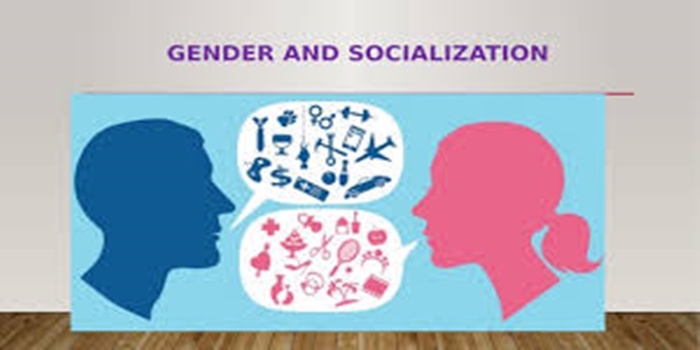In the article, we discussed the meaning of gender socialization, the examples, the agents, the types, we also talked about the importance and impact
Definition
Gender socialization is the process by which children learn how to behave in accordance with the social expectations of their gender. Gender socialization begins at birth and continues throughout a person’s life. It can occur through cultural, structural, and cognitive means.
Here are some examples of gender socialization:
Color-coding: Babies are often dressed in pink or blue, even before they are born.
Toys: Toys are often color-coded by gender.
Family roles: Parents may assign tasks to their children based on gender, such as asking boys to take out the trash and girls to fold laundry.
Teachers: Teachers may unintentionally send messages to students about which gender is better at certain subjects.
Gender socialization can have real consequences, such as:
Gender wage gap: Men earn more than women, even when their employment status is equal.
Lack of female leadership: Women are underrepresented in leadership positions, such as in Fortune 500 companies.
Gender discrepancies in politics and legal matters: Laws regarding women’s reproductive health are often made by a male-dominated legislative body.
Gender-typed behaviors: Gender-typed behaviors are more common among girls than boys.
Family
Parents are usually the first source of gender socialization, communicating different expectations to their children based on their sex.
Schools
Teachers and school administrators model gender roles and may reinforce stereotypes by responding to students differently.
Peers
Children develop gender-related beliefs and expectations through interactions with their peers.
Mass media
The media reinforces gender roles through exposure to gender-specific behavior.
The Types of Gender Socialization
Gender socialization is the process by which children learn how to behave as men or women, and it can include many aspects of life:
Gender roles
Society’s expectations for how men and women should act.
Gender identity
A person’s sense of their own gender, which is influenced by socialization and biology.
Gender stereotypes
Traditional beliefs about how men and women should behave, which can limit personal growth.
Gender schemes
Children learn gender schemes for both male and female attributes, but their application of these expectations to unknown people increases with age for male roles.
Gender socialization can be taught by many different people and institutions, including: family, peers, media, and community.
Beliefs and abilities
The Important of Gender Socialization
Gender socialization can shape a person’s beliefs about their abilities, which can affect their career choices. For example, girls may be taught that boys aren’t interested in intelligent girls, which can lead them to choose careers that align with gender expectations.
Behavior
Gender socialization can affect a person’s behavior in many areas, including school, the workplace, and relationships.
Gender inequality
Understanding gender socialization can help address gender inequality and discrimination.
Individual development
Socialization is a key part of individual development, and research shows that both nature and nurture (the social environment) affect who we are.
This s a lifelong process, and the beliefs we acquire as children can have a big impact on our lives. Gender roles can vary from family to family, culture to culture, and country to country.
The Impact of Gender Socialization
Gender socialization is a lifelong process that can have a significant impact on a person’s life. It can affect a person’s:
Career choices
Gender socialization can influence career choices. For example, girls may be taught that boys aren’t interested in intelligent girls, which can lead them to choose careers that align with gender expectations.
Self-concept
Gender socialization can influence a person’s self-concept in areas that are traditionally associated with their gender. For example, boys may be encouraged to do well in traditionally male-dominated areas.
Relationships
Gender roles can create power imbalances and limit a person’s ability to express themselves authentically. This can lead to frustration, resentment, and a lack of intimacy.
Behavior
Gender socialization can affect a person’s behavior in school, the workplace, or their relationships. For example, some school teachers may use male teaching methods for subjects that are suitable for males, regardless of whether female students can keep up.
Mental health
Internalizing traditional gender roles can harm a person’s mental health.
Conclusion
Gender socialization is the process by which children learn about the social expectations, attitudes, and behaviors typically associated with boys and girls. People, peer groups, education, school systems, religions, and the media are all agents that teach us how we are expected to behave.

